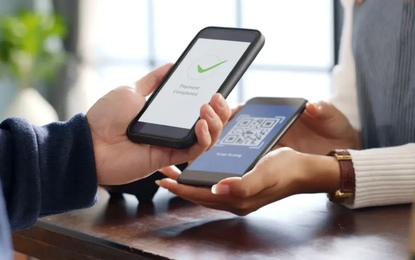

As financial services become unbundled, banks need an integration strategy, according to Manolo Sanchez, former BBVA Compass board member.
It isn’t uncommon today for users to move from one app to another to make payments, transfers or manage their investments. New fintech players have broken up financial processes previously handled by a single institution, often with a focus on optimizing a single product or service at a time.
And it is precisely this unbundling of the business that’s affecting banks’ market share.
However, banks have the opportunity to become “supermarkets” for financial services, integrating and streamlining complex KYC (Know Your Client) processes for a myriad of single-product startups, said Manolo Sanchez, former CEO of BBVA Compass.
“We're so accustomed to consuming very little functionality by just downloading one app. And suddenly, we are ready to go and disconnect from my traditional supplier of that service. That's where I think banks will be struggling, trying to regain their space,” he said on Veritran’s Banking (Remix) podcast, which invites leaders in digital finance to share strategies and perspectives on the future of the sector.
Banks are being left out of many parts of the value chain: for example, in insurance sales, in the mortgage market and particularly in the interbank and international payments and transfers businesses, where apps such as Venmo or Wise are taking an increasingly large share of the market.
Given this scenario, Sanchez recommends a combination of innovation, user experience and aggregation to stay relevant.
“Basically, a part of it is getting their services to be truly operational on digital platforms, in a seamless, straight through way. [...] And the problem is that the standards that are being set by the fintechs are very high in terms of quality of user experience,” he said.
On that path of transformation, banks will need to partner with multiple types of businesses, even startups that seemingly constitute the competition.
“So to the extent [a bank] can enable that supermarket, there's more functionality there.”
Sanchez explained that by integrating various services and products into the bank’s platform, it eliminates the competition factor, and KYC—which is an asset that all banks have at hand—can be used to help funnel users to the tools they really need, without having to do multiple onboarding processes for different apps.
“I think that may be the way that you can help rebundle. So it's not really the same rebundling, it's a new architecture production. But that's just the thought. I haven't seen anybody really try to do this in earnest,” he said.
Decision-making in this regard requires haste, Sanchez warned, as the new challengers will begin to focus on rebuilding financial service packages, and this is where banks will face “a bit of the war.”
“Because of course, these fintechs, once they came up with this superb new customer experience for the sliver, right? And they say to you, what are they going to do next? They're going to try to sell you a debit card and the checking account,” he said.
The digital transformation approach now encompasses new (and larger) avenues to explore for market share. In this setting, cryptocurrency-based decentralized finance (DeFi) is the new gateway with which banks should already be experimenting.
“What we are seeing is really the birth of a financial system alongside these [crypto] assets,” says Sanchez.
According to Sanchez, there’s currently a US$2 trillion market for cryptographic assets, which naturally has generated expectations among the public for access to loans, payments and exchange mechanisms.
The most relevant aspect of this new financial format, aside from the growth, is that it doesn’t need a central authority to manage it. A capability that “banks should be afraid of.” However, that doesn’t mean that they can’t join the trend.
“Banks are operating ATM networks. They are operating debit card switch networks. They operate Nacha—the domestic wire transfer system—why couldn’t they operate nodes?” he said.
“They could be supporting, clearly, some of this cryptocurrency infrastructure. At the end of the day, it's all infrastructure. It is value infrastructure. It is the internet of value. And therefore, in a way, it's that payment infrastructure of the century. And I think the banks have a role to play there,” he said.
These and other comments were shared by Manolo Sanchez in Banking (Remix), Veritran’s new podcast.
We invite you to listen to the full conversation on Spotify, Apple Podcasts or SoundCloud.
Spotify: https://bit.ly/SpotifyBankingRemixS01E03
Apple: https://bit.ly/AppleBankingRemixS01E03
SoundCloud: https://bit.ly/SoundCloudBankingRemixS01E03
Join our online community and stay up to date with the latest news from the world of technology.